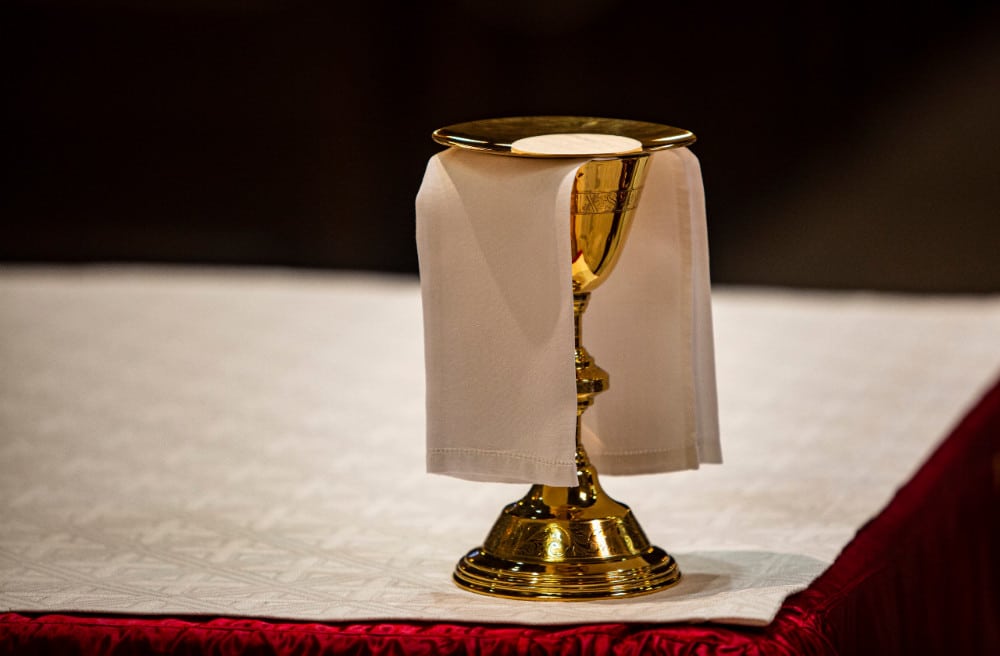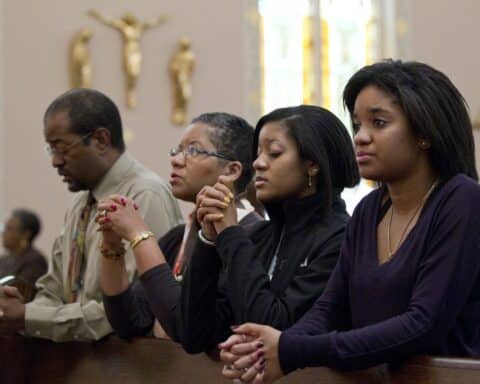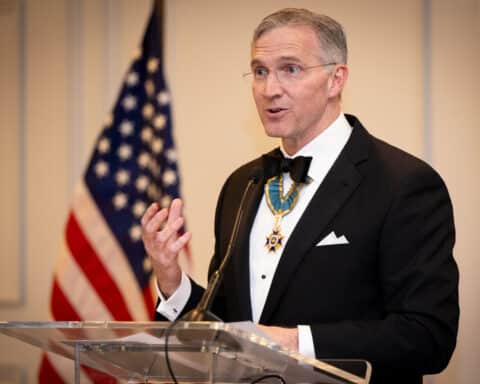
The Council of Trent taught in the 16th century that “a sacrament is a visible sign of an invisible grace.” So what are the invisible graces that are lavished upon us by God in the sacraments for our good? The National Eucharistic Revival invites us to consider this question in light of the Eucharist. How can we come to better realize the Eucharist’s fruits and allow them to transform us and the world?
Pope Benedict XVI called the Eucharist the “sacrament par excellence” because it contains “the whole mystery of our salvation.” The Eucharist makes the Church, a phrase coined by the French Jesuit theologian Henri DeLubac, which is to say that in the Eucharist we are continually built up as Christ’s body, which is why Vatican II called the Church “the sacrament of salvation.”
“Sitting at the right hand of the Father,” the council fathers continued, “[Christ] is continually active in the world that He might lead men to the Church and through it join them to Himself and that He might make them partakers of His glorious life by nourishing them with His own Body and Blood” (Lumen Gentium, No. 48).
But how often do we consider the Eucharist as a sacrament of future glory? Sure we think about the Eucharist as a means to encounter Christ’s saving actions 2 millennia ago. It’s true that at the foot of Calvary we kneel at every Mass. But Calvary lacks its meaning, doesn’t it, without a view to the empty tomb, without sight of Christ ascending into glory?
Do we celebrate and receive the Eucharist with a glace toward heaven, with the desire to worship in the new Jerusalem? How might the invisible grace of the Eucharist help us keep that focus?
The council fathers, in making clear that our aim should be nothing less than to become “partakers of His glorious life,” desired for all men and women to become saints. Christ makes us members of his body, and we strive to allow Christ to become part of us by following his way. “It is Christ in you, the hope for glory,” says St. Paul (Col 1:27). “Receive what you are and become what you receive,” says St. Augustine. In the Eucharist, we find the means to become what we were made to be.
This is why Vatican II called the Eucharist “the source and summit of the whole Christian life.” The grace of the sacrament gives us what we need to become like Christ. With every bit of our salvation contained in the Eucharist, the sacrament is the blueprint for how our lives ought to look. When we live the Eucharist — which Pope Benedict said “reveals the true beauty of Christianity” — we are mirrors of truth, charity, service, oblation. And our very hope of salvation becomes something living and tangible in us, for with St. Paul, we dare to say “I live, no longer I, but Christ lives in me” (Gal 2:20).
Sure, the Eucharist is a sacrament of Calvary, which helps us to see what it means to live. But it’s also a sacrament of future glory, for in it we see the only means to truly live. In our imitation of him, in living eucharistically, we are glorifying Christ. Then, as members of his body, as members of the church, we truly become sacraments of Christ in a world that needs him still. We become living witnesses of the peace of the Kingdom for which we were made and to which we dare attain.
Michael R. Heinlein is author of “Glorifying Christ: The Life of Cardinal Francis E. George, O.M.I.” and currently in formation for the Association of Pauline Cooperators.





